This article was written by Luna Rose. Luna Rose is an autistic community member who specializes in writing and autism. She holds a degree in Informatics and has spoken at college events to improve understanding about disabilities. Luna Rose leads wikiHow's Autism Project.
There are 10 references cited in this article, which can be found at the bottom of the page.
This article has been viewed 30,631 times.
Are you an autistic girl in her childhood, preteen, or teen years? Do want to be sweet, adorable, and able to bring smiles to people's faces? This wikiHow will help you learn how to let your cute and compassionate nature run free.
Steps
Being Sweet
Kindness is what drives the world forward, and showing your loving nature to the world will make it a happier place.
-
1Do random acts of kindness. Just like you have problems that other people don't know about, everyone has problems you can't see. You never know who might need a pick-me-up. Here are some ideas:
- Give random compliments.
- Hold doors open for people.
- Pick things up when people drop them.
- Smile at people.
- Surprise people with little gifts.
- Do anything else that will benefit others. Even doing a minor edit to a wikiHow article can be considered an act of kindness.
-
2Learn how to be a good listener when people need you. It's very helpful for them to have a shoulder to cry on. Validate their feelings and let them know that they matter to you.[1] [2] Here are some useful phrases you can use to get the conversation going:
- "Do you want to talk about it?"
- "That sounds really tough."
- "I can see why you're so upset. That's a difficult problem to deal with."
- "Is there a way I could help you with that?"
- "Would it be helpful if we told an adult about it?"
- "Do you want to talk about it or take your mind off it?"
Advertisement -
3Go out of your way to be there for people who are sad. Hug someone who looks upset, draw them a picture, offer them gum, or pick them flowers. This will help them recognize that people care about them.
- If you're shy, that's okay. Silently handing them a piece of candy or sweet little note can cheer them up. Being kind and helpful is always a good thing, even if it's done through small or silent gestures.
-
4Show appreciate to others. People love to hear that you care and you're thankful for them. Thank lots of people: your parents, your teachers, guest speakers, the school janitors, anyone who makes the world a better place.
- A helpful rule of thumb is that when you have a nice thought about someone else, it's good to share it. It will brighten their day. For example, if you like how someone's necklace looks on them, you can say "Your necklace is pretty."
-
5Ask other people to teach you things. Everybody loves to feel like an expert, and asking for them to teach you lets them be helpful. Also, you can learn new ideas and pieces of wisdom from them.
-
6Take good care of yourself first. It's hard to be helpful and sweet if your own needs aren't being met. Pay attention to yourself, and it'll be easier to be kind to others. Your health comes first.
- Eat healthy food and get at least 8 hours of sleep.
- Give yourself some quiet time to relax each day.
- If someone is bullying or upsetting you, tell an adult. Your feelings matter.
- Never smoke, drink, or try drugs. If someone offers them, say "No, thanks!"
-
7Be assertive. It's good to be kind, but it's not good to be afraid to upset others. It's okay not to please everyone all the time. You don't have to do everything that people ask you to do, and you always have the right to say no.
- Speak up if you see something that you think is wrong.
- You don't have to hug people or smile if you aren't in the mood.
- Practice scripts like "No, thank you" and "I would prefer not to."
- If a situation feels weird or wrong to you, even if you don't understand why, talk to a trusted adult about it.
- If someone doesn't listen when you say no, tell an adult you trust.
-
8Be kind to yourself too. True kindness comes within, and you need to show it to yourself (not just other people). Give yourself understanding, compassion, and gentleness. Life is hard enough without being your own bully. Work on being kind to yourself.
- Remember that you're allowed to have bad days. You will mess up, be cranky sometimes, hurt people's feeling by accident, and make mistakes. Everyone does this sometimes. Don't beat yourself up for not being perfect.
- If you catch yourself being mean to yourself, stop. Ask yourself, "What would I say to a friend who was in my situation?" You would probably be a lot nicer, right? Treat yourself with the same kindness that you would give to a good friend.
Being Adorably Autistic
You can look the part of the sweet autistic girl by being incredibly cute. Cuteness is defined less by how you look, and more by how you act.
-
1Express your feelings how you'd like. Showing people how you feel helps them connect with you. If you feel enthusiastic and want to flap your hands, do it. If you're sad, find someone you trust and tell them what's wrong.
- It's okay if the way you express yourself is different from the average. This is totally normal for autistic people. You're allowed to be autistic, because you're allowed to be yourself. Some may not fully understand you, but this does not mean that you have to listen to their misconceptions.
-
2Stim all you want. Your stimming helps you stay calm, focus, and express your feelings.[3] [4] [5] It is part of your disability (just like a blind person's white cane or a deaf person's sign language) and it's okay to be disabled in public. It's cute to be you!
- You do not need to act like you are not autistic; constantly pretending to be someone else would mean not being yourself. It is okay to be yourself, whether you are autistic or not.
-
3Dress adorably. This can mean different things for different people, but it more or less means dressing in ways that make you smile. If you love it, that means it's lovable.
- Wear your favorite colors. Most people associate "adorable" with pink or pale colors, but do not force yourself to dress in a way that makes you feel uncomfortable.
- Pick comfy fabrics that are great for stimming. Try soft fabrics like microfiber, breezy fabrics, or whatever you like.
- Dress in layers in case you get hot or cold.
-
4Do things you love. If you do things that make you smile, it will help you be positive and nice to other people. Read about your special interests, sing and dance to music, paint, build a toy robot, or do whatever you like.
- Your special interests are very important.[6] [7] [8] Try joining clubs and meeting people who like your interests so that you can talk about them. If you can, do something related to a special interest every day. It can help you feel happier and calmer.
- Autism is not just a list of challenges. You also have remarkable strengths. You are not a burden, you are a lovable, kind, and worthwhile person.[9]
-
5
-
6Give yourself permission to be you, and don't worry about being "normal".[10] You might look different when you stim, or not "act your age." You may have trouble speaking and snuggle with stuffed animals while you read Jane Eyre. This is all okay. A sweet autistic girl is a girl who isn't afraid to be herself.
-
7Recognize that your sweet, autistic self is already inside of you. It's okay to be autistic, and it's okay to be you. You are already wonderful just the way you are!
Warnings
- Some people think that it's fun to bully people who are different, including autistic people. Stay away from these people. They are mean, and the things they say aren't true about you.⧼thumbs_response⧽
- Tell an adult right away if you are being bullied or teased by someone.⧼thumbs_response⧽
- Be careful if you search online for autism information. Sometimes people who don't understand autism will write articles that say cruel things. They are wrong. It's best to read things written by autistic people. (wikiHow is pretty good about this.)⧼thumbs_response⧽
References
- ↑ EQI: Validating Others (includes examples of validation)
- ↑ Psychology Today: Understanding Validation
- ↑ https://www.ncbi.nlm.nih.gov/pmc/articles/PMC6728747/
- ↑ Stimming 101, or: How I Learned to Stop Worrying and Love the Stim
- ↑ The High Cost of Self-Censoring, or Why Stimming is a Good Thing
- ↑ Autistic Students: Take Advantage of Special Interests and Strengths
- ↑ "What's So Special About a Special Interest?" by Cynthia Kim
- ↑ Autism and Special Interests
- ↑ "Aspie Strengths and Superpowers" by Cynthia Kim

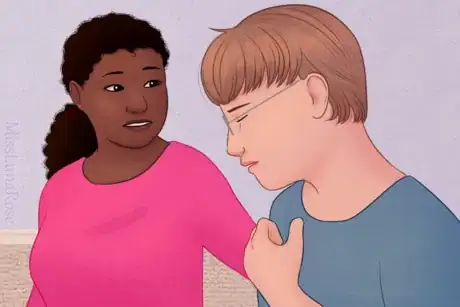

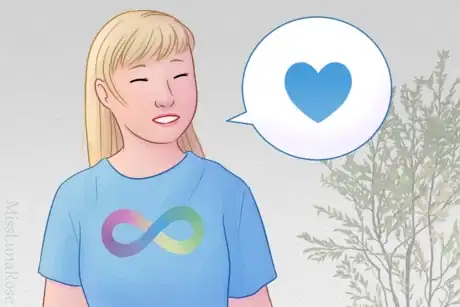
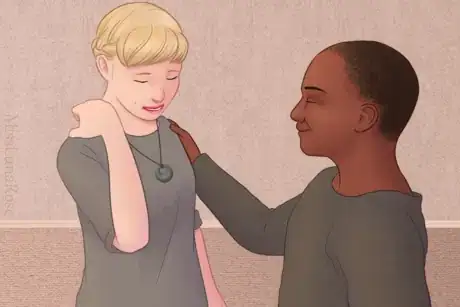

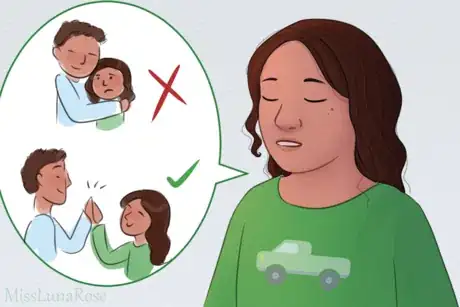

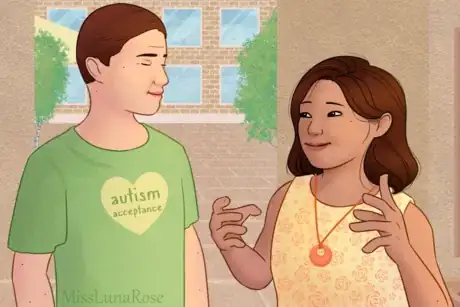





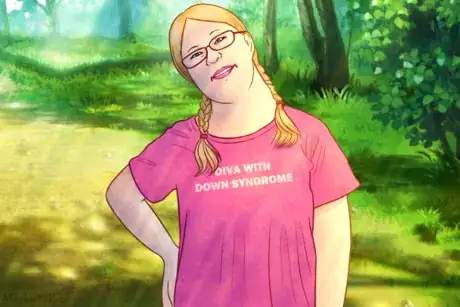






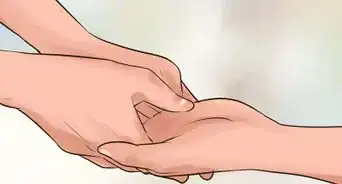
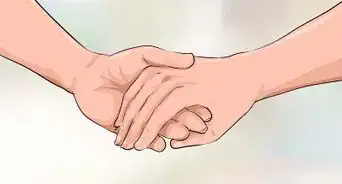


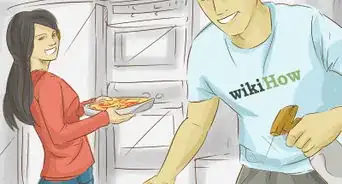


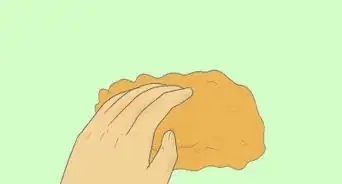













































Medical Disclaimer
The content of this article is not intended to be a substitute for professional medical advice, examination, diagnosis, or treatment. You should always contact your doctor or other qualified healthcare professional before starting, changing, or stopping any kind of health treatment.
Read More...